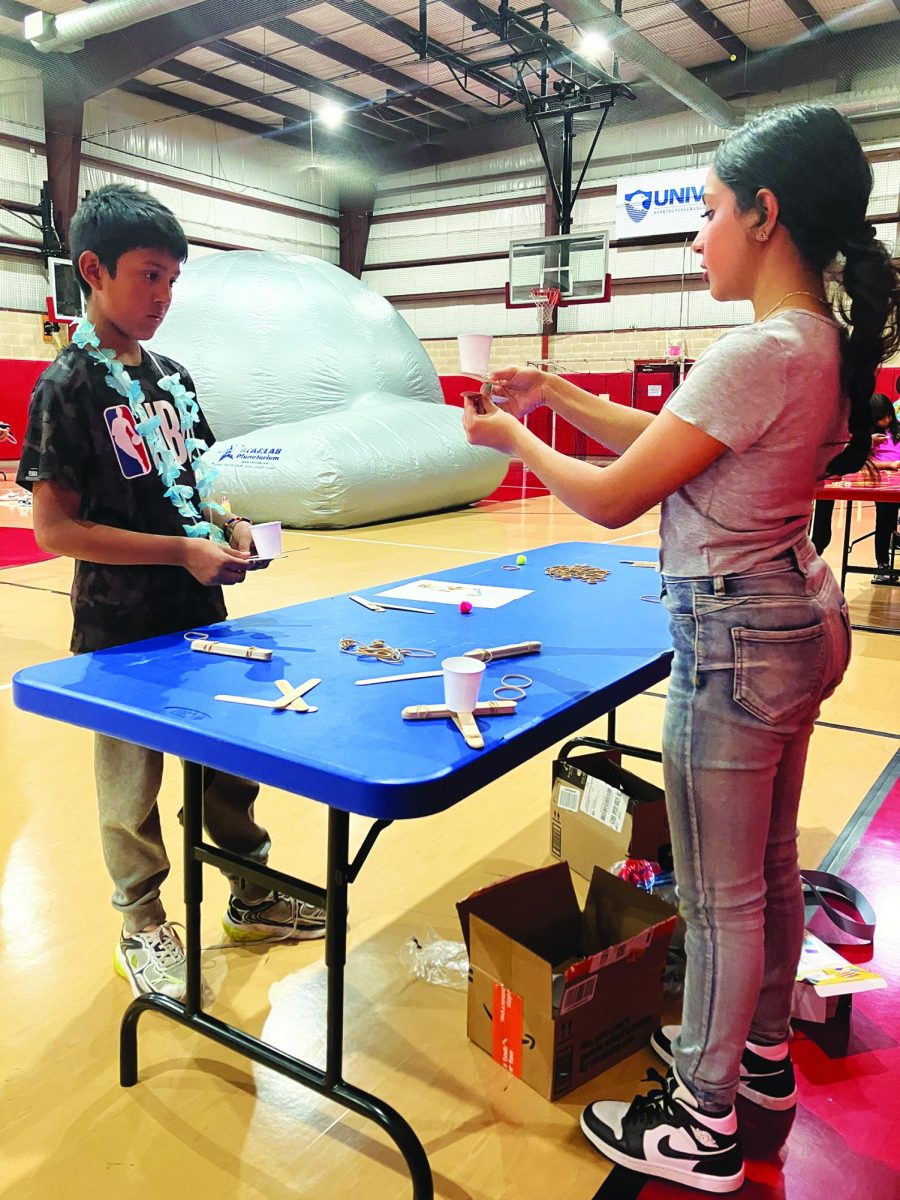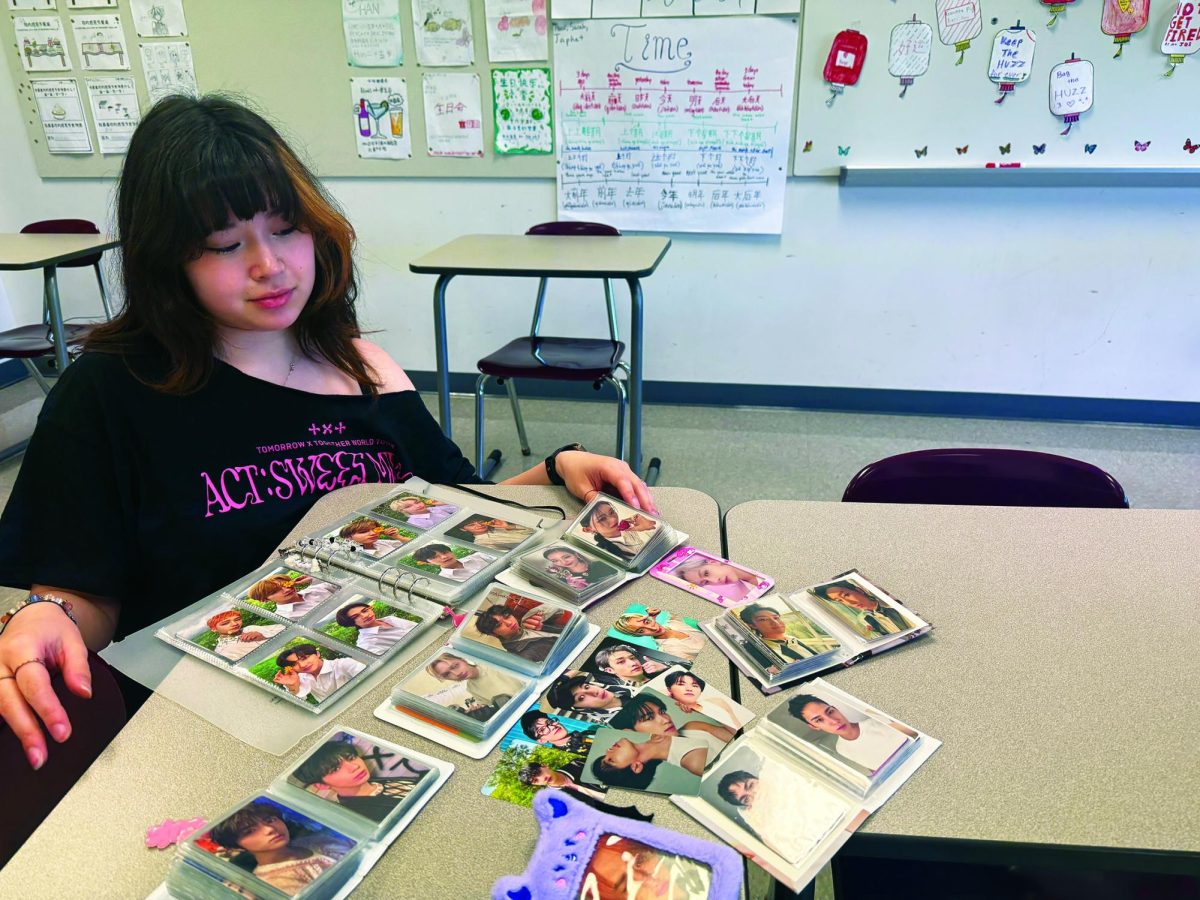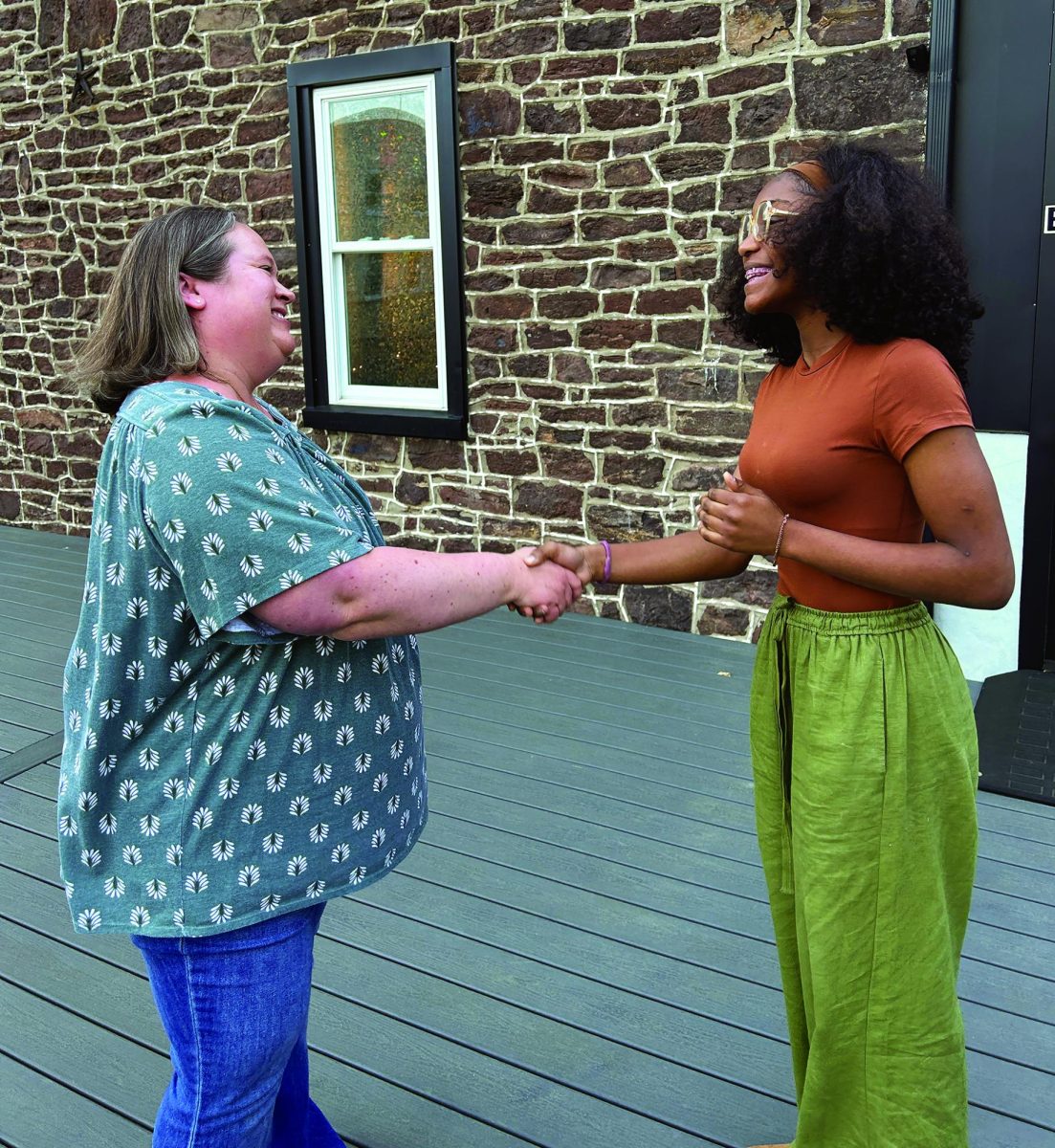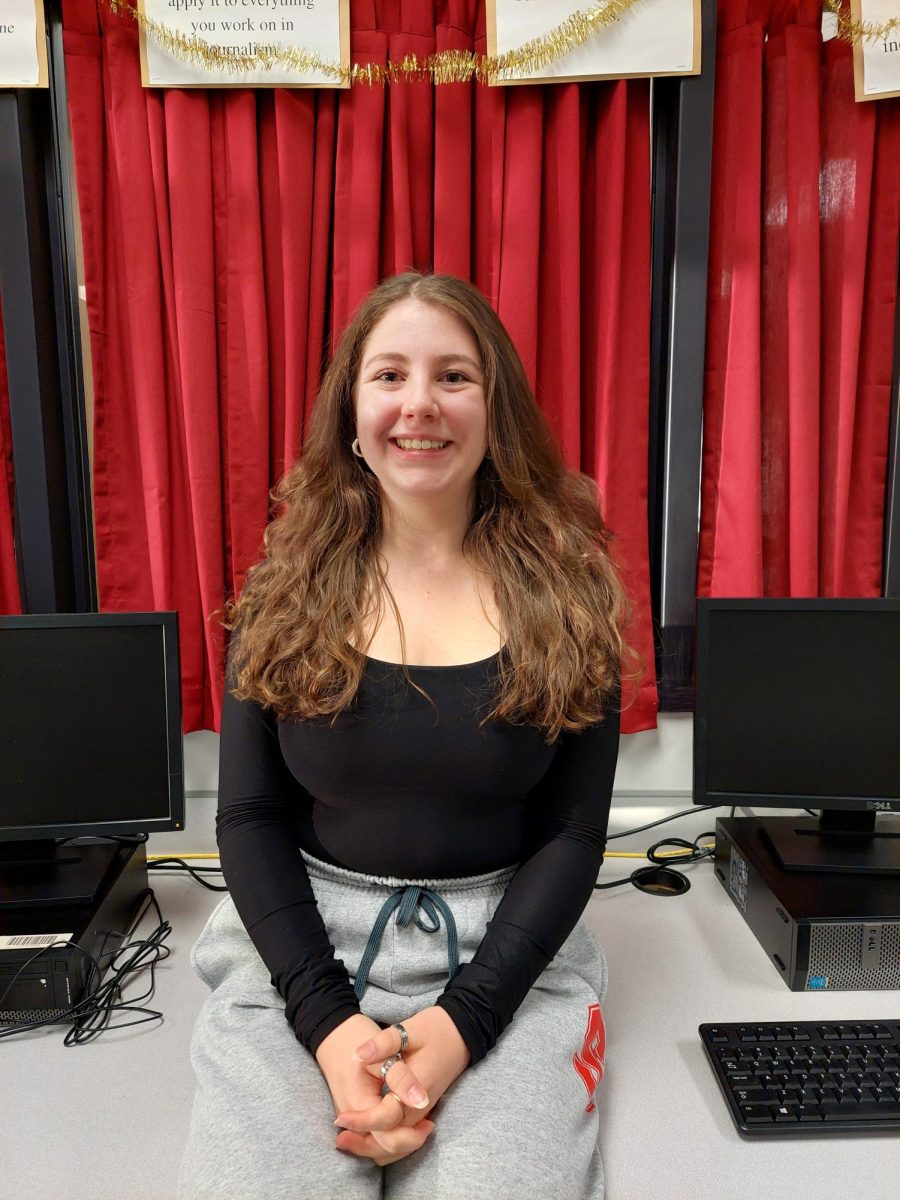To ensure the continuation of their students’ education during a global pandemic, colleges across the United States are working to bring students together towards graduation through online schooling and opening their campuses.
Fall semester of 2020 is looking different than the previous years for many college students. Some are beginning their year from their home, while others are back on campus. Private colleges are making their own decisions in regards to where their students will be pursuing their education during the pandemic.
DeSales University freshman Bella Taylor began her freshman year on campus and is currently staying in a dorm with a roommate.
DeSales has made COVID-friendly adaptations to ensure the safety of students’ return to campus.
“DeSales has implemented many rules and regulations for the safety of its students, staff and community. Everyone is required to wear masks, social distance, and many classes are in a hybrid format or entirely online.” Taylor said.
Online school has improved for Taylor since last year, which she attributes to a larger period of preparation time.
“Online learning is much easier and more efficient now than it was last year because there was more time to prepare.”
Some students have taken a more cautious approach to education, staying off campus for the time being.
Rensselaer Polytechnic Institute (RPI) senior Giana Kamaratos is spending her fall semester in her hometown and doing an online schooling program. Kamaratos is studying biophysics and biochemistry, which has displayed additional challenges during COVID-19.
Before her junior year was cut short, Kamaratos was supposed to spend her junior year and summer completing lab time. Since she is learning remotely the past two semesters, her time in labs has been minimal.
“I had to shift my course plan a lot and end up taking most of my classes that were planned for my senior year.” Kamaratos said.
Kamaratos plans to stay positive and make the best of the situation at hand.
“Hopefully I will be able to take all of my labs next year. It will definitely not be a diverse year and will be very stressful, considering labs can be up to four hours long in one day. I will just have to do my best with what I have,” Kamaratos said.
University of Pennsylvania senior Matt Piegza is currently staying off campus in an apartment with four of his roommates. UPenn is online, but Piegza is staying close to campus to make use of his apartment lease.
Piegza wishes UPenn was attempting a hybrid model, as other schools have done.
“I wish Penn allowed in-person classes. Other schools have adopted a hybrid model and I wish we took the initiative to do that as well.” Piegza said.
Piegza believes the monetary and social value of in-person classes is much higher than that of online school and believes Penn should’ve adjusted their tuition as such.
“Penn should not be charging $70,000 per year for online classes when it is clearly inferior to the in-person experience,” Piegza said.
Piegza believes that an in-person experience would have done an even better job at preparing him for entering the workforce. As a business major, personal connection is important to Piegza.
“While I feel prepared for the real world, I think in-person classes would have made me feel even more prepared. When you’re online for so long, you start to feel disconnected from people and what it’s like to collaborate and learn in-person.” Piegza said.
Tulane University sophomore Kate Schickfus has undergone two quarantines in her fall semester so far. Her first was when she originally arrived on campus.
For two weeks with a friend, Schickfus stayed in a “quarantine dorm” with a roommate. The “quarantine dorm” was a dorm that had been converted to be accommodating to quarantined students.
She found the quarantine to be disruptive to the beginning of her school year.
“The timing on that was tough and I would say it kinda set me back for the rest of the semester.” Schickfus said.
For her second quarantine, Shickfus stayed in a hotel in New Orleans.
She said the experience was bearable, especially compared the stories she heard from her friends who experienced other quarantine conditions.
Her friends stories included experiences like being woken up at two in the morning for symptom checks, lack of organization of patients, not receiving food because the management thought the patient had checked out, and finding a dead lizard on the ground of their room.
“It’s just disheartening and scary to receive inadequate care, misinformation, or no information at all when you’re locked in a room and can’t do anything for yourself,” Schickfus said.
Shickfus believes online school has its challenges, especially with the stress of quarantining and staying safe in a city.
“Generally it’s harder to devote time and energy to learning when most people are just trying to stay sane and healthy,” Schickfus said.
Schickfus hasn’t declared her major yet and is expected to at the end of next semester. She feels confident about completing her credits, but has worries about having time to discover what she truly wants to major in before having to declare it.
“I don’t know if I have the same opportunities to discover my interests or passions this year and that obviously causes some issues for when I have to declare a major at the end of next semester,” Schickfus said.
COVID-19 has put a pause on large group activities where a student may have an opportunity to pursue a passion or interest, including sports.
Piegza’s varsity crew team is no longer together in full. About two thirds of the team is in Philadelphia. Piegza misses getting to see the rest of the team and spending meals with the team.
“Everyday, twice a day, I would get to interact with 40 teammates. Now, I see my four roommates everyday, which is really nice, but I wish I saw the rest of the guys too.” Piegza said.
Piegza does his best to see his teammates as much as possible, but with the new online schedule and guidelines, it is no longer as easy.
“I try to get together with my other teammates a few times per week, but it’s difficult to find the time and space to do that.” Piegza said.
To make up for lost time in the boat, Piegza is considering spending grad school in the UK at either Cambridge or Oxford, while continuing to row.
As for what colleges could be doing better, Taylor wishes DeSales had better online systems for exam taking.
“I wish there was more efficiency with taking exams. Online exams are incredibly prone to technical difficulties. Additionally, we are videotaped and recorded while taking our exams, which creates uncomfortable stress.” Taylor said.
According to Piegza, collaborating while his classmates are across the nation and globe has posed a challenge.
“Several of my classes have group projects and it’s quite difficult to collaborate on assignments when your other group members are in different countries and time zones,” Piegza said.
Kamaratos hopes RPI begins to convert more of its on campus amenities to have virtual options, such as their counseling and health services centers.
“I wish RPI would provide more online access to on-campus amenities like our counseling center, or even the health center because some students are struggling with being isolated and not being able to go out into the world,” Kamaratos said.
Kamaratos has used virtual club involvement to stay connected with classmates. She participates in RPI’s Theater Club through Webex.
“We have designed and planned a fall cabaret show that anyone can participate in. During practices we use Webex to see and chat with each other which has been very fun.” Kamaratos said.
Schickfus feels online school poses challenges to students who focus best in a traditional learning environment.
“Some students struggle taking tests or doing homework online if there isn’t a quiet environment readily available” Schickfus said.
Colleges across nation work to facilitate safe continuation of student education
Whether meeting online or in person, college students have begun their fall semester in an attempt to continue their pursuit of education through challenges faced by new safety guidelines.
0
More to Discover
About the Contributor

Julia Vizza, Co-Editor-in-Chief





